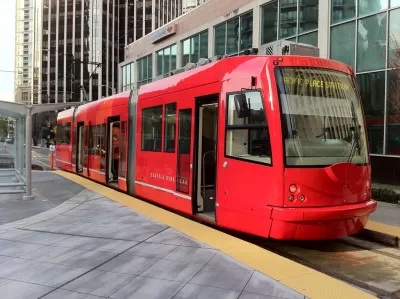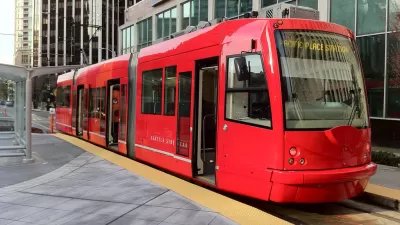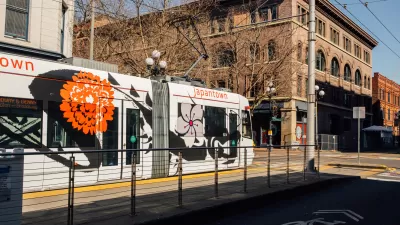Can an expansion of Seattle's streetcar system somehow outperform its previous iterations, and all other public transit modes in the city?

Critics are pushing back on the financial plan for 1.2-mile Center City Connector streetcar line that will run along First Avenue, according to an article in the Seattle Times.
According to David Gutman, planners are expecting a newly expanded streetcar along First Avenue to generate revenue from the fare box to cover 56 percent of the system's operating costs.
That would require a serious improvement on fare recovery on all other modes in the region. "Your fares cover about 40 percent of operating costs for Sound Transit’s Link light rail. Fares cover about 31 percent of the cost of King County Metro buses. Seattle’s two streetcar lines cover 23 percent of their costs with fares," writes Gutman.
The article includes a direct statement about the financial projections from Seattle City Councilmember Lisa Herbold, as well as other indications that staff outside the Seattle Department of Transportation doubt whether the new streetcar is going to as popular as assumed. Gutman provides a lot more detail about the plan for the streetcar expansion, which is expected to cost $177 million and break ground early in October 2017.
For the record, the Center City Connector has recovered from reports of its demise late in 2016.
FULL STORY: Seattle to spend $177M on new streetcar line amid questions about ‘unrealistic’ revenue, rider projections

Planetizen Federal Action Tracker
A weekly monitor of how Trump’s orders and actions are impacting planners and planning in America.

Maui's Vacation Rental Debate Turns Ugly
Verbal attacks, misinformation campaigns and fistfights plague a high-stakes debate to convert thousands of vacation rentals into long-term housing.

San Francisco Suspends Traffic Calming Amidst Record Deaths
Citing “a challenging fiscal landscape,” the city will cease the program on the heels of 42 traffic deaths, including 24 pedestrians.

Defunct Pittsburgh Power Plant to Become Residential Tower
A decommissioned steam heat plant will be redeveloped into almost 100 affordable housing units.

Trump Prompts Restructuring of Transportation Research Board in “Unprecedented Overreach”
The TRB has eliminated more than half of its committees including those focused on climate, equity, and cities.

Amtrak Rolls Out New Orleans to Alabama “Mardi Gras” Train
The new service will operate morning and evening departures between Mobile and New Orleans.
Urban Design for Planners 1: Software Tools
This six-course series explores essential urban design concepts using open source software and equips planners with the tools they need to participate fully in the urban design process.
Planning for Universal Design
Learn the tools for implementing Universal Design in planning regulations.
Heyer Gruel & Associates PA
JM Goldson LLC
Custer County Colorado
City of Camden Redevelopment Agency
City of Astoria
Transportation Research & Education Center (TREC) at Portland State University
Jefferson Parish Government
Camden Redevelopment Agency
City of Claremont




























